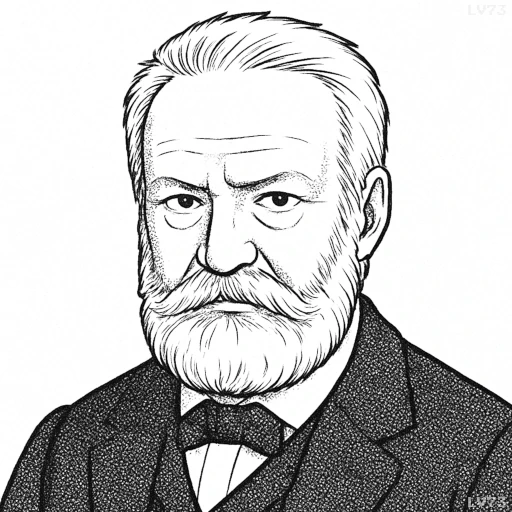“The three great problems of this century; the degradation of man in the proletariat, the subjection of women through hunger, the atrophy of the child by darkness.”

- February 26, 1802 – May 22, 1885
- Born in France
- Author, poet, playwright
table of contents
Quote
“The three great problems of this century; the degradation of man in the proletariat, the subjection of women through hunger, the atrophy of the child by darkness.”
Explanation
In this quote, Victor Hugo identifies three profound social issues that he sees as critical challenges facing his time: the degradation of the working class (proletariat), the subjugation of women through poverty, and the suffering of children due to ignorance and neglect.
1. The degradation of man in the proletariat refers to the harsh conditions faced by the working class. Hugo highlights the social inequality and economic exploitation that forces people into lives of poverty, oppression, and a loss of dignity. The proletariat—working-class individuals—are often denied opportunity and humanity by the economic systems of the time. 2. The subjection of women through hunger speaks to the gender inequality that restricts women’s freedom and well-being. Women, especially in impoverished conditions, suffer from a lack of access to resources and are often trapped in cycles of hunger and poverty, unable to achieve independence or empowerment.
3. The atrophy of the child by darkness refers to the way in which children are deprived of the nurturing and education they need to grow and develop. “Darkness” symbolizes the lack of knowledge, opportunity, and care that prevent children from achieving their full potential, resulting in a kind of intellectual and emotional atrophy.
Hugo’s words reflect his concern for human rights, social justice, and the well-being of the most vulnerable in society. He emphasizes the suffering of the oppressed, pointing out that these issues are deeply interwoven and reflect systemic failures in society. He calls attention to the need for a society that is more just, where every individual—regardless of class, gender, or age—has the opportunity to live with dignity and fulfillment.
In modern terms, this quote speaks to the continuing relevance of these social issues today, including the inequality of the working class, the gender and economic disparities that affect women, and the importance of providing education and care for children. It calls for action to address these problems and create a world where all people have the chance to thrive and reach their potential, free from the burdens of poverty, oppression, and ignorance.
Would you like to share your impressions or related stories about this quote in the comments section?


